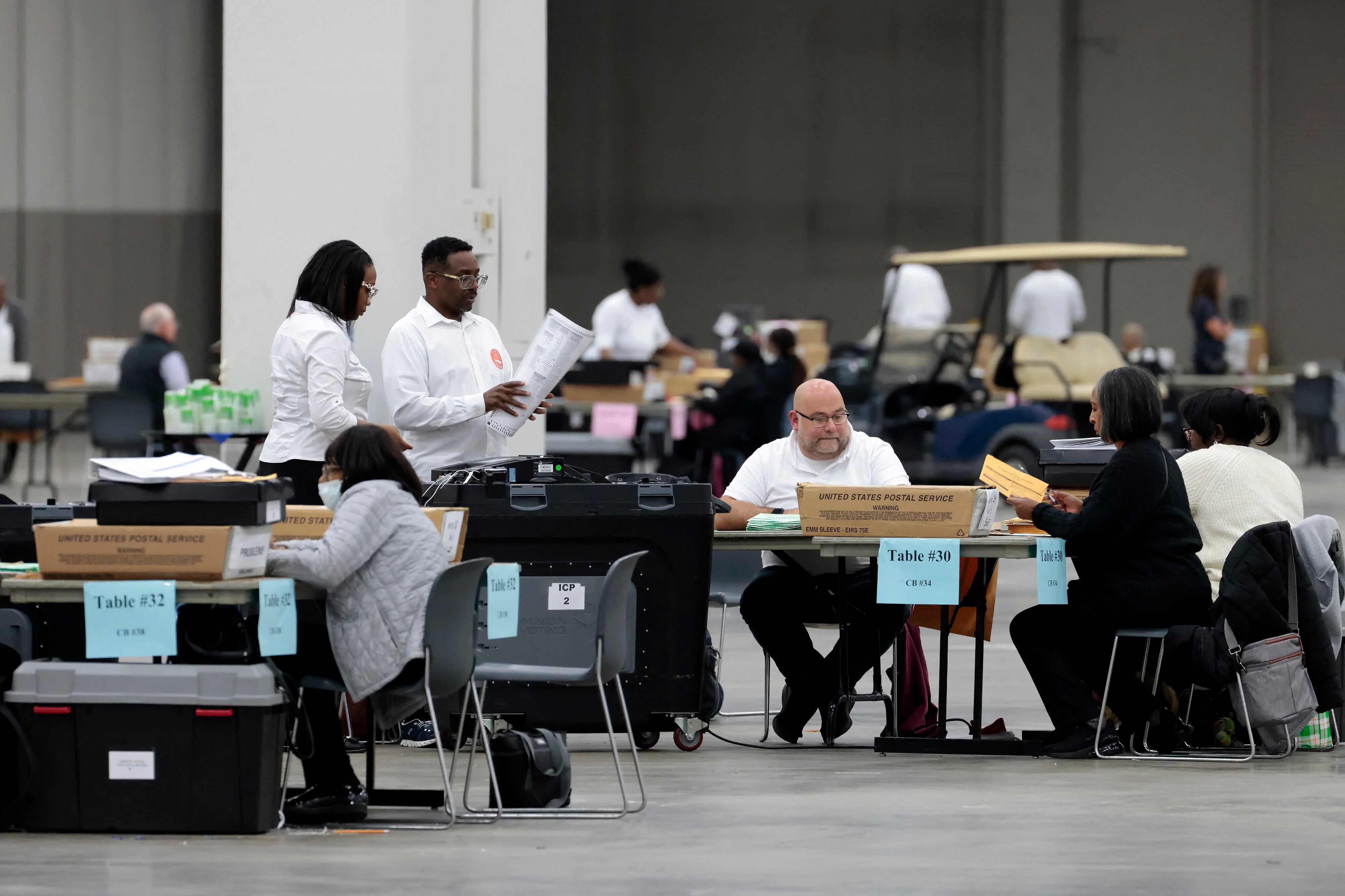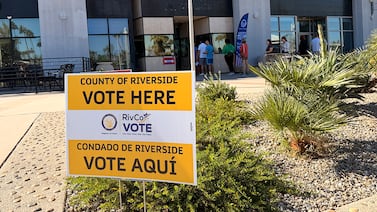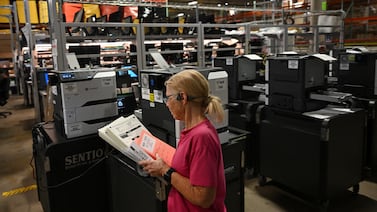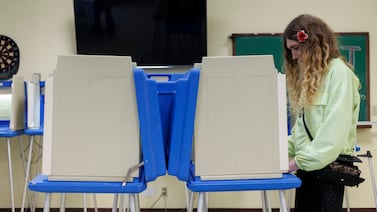Votebeat is a nonprofit news organization reporting on voting access and election administration across the U.S.
This news analysis was originally distributed in Votebeat’s free weekly newsletter. Sign up to get future editions, including the latest reporting from Votebeat bureaus and curated news from other publications, delivered to your inbox every Saturday.
Tuesday — the last day of voting — is nearly here. That faint rustling you hear is the sound of thousands of election workers processing ballots, setting up voting machines, checking in voters, and doing the dozens of other things they do to make sure we have reliable results.
When will we have them? Your guess is as good as mine.
In 2016, we knew that Donald Trump had been elected in the early hours of the following morning. In 2020, things stretched out: The race wasn’t officially called by the Associated Press until Saturday, nearly four days after polls closed. Even then, several crucial states — Nevada, Georgia, and North Carolina — hadn’t been called, but enough votes had been tabulated nationally that the result was clear.
We may be looking at a similar timeframe this year if the race is as tight as the polls say it is.
While North Carolina and Michigan have successfully changed their tabulation procedures to help speed up the process, other states — Arizona, Nevada, Pennsylvania and Wisconsin — have added rules that might slow things down (GOP election lawyer Ben Ginsburg explains for The New York Times).
In 2020, significantly more Democrats voted by mail than Republicans, leading to what some people called the “red mirage” or the “blue shift,” as mailed ballots were processed and added to vote totals. This time, the Republican Party and even Trump have taken a remarkably different position on mail and early voting, but it’s not clear what that will mean for the results.
In Slate, Rick Hasen of the UCLA School of Law points out that Democrats are still more likely to vote by mail, and even if a candidate appears to be leading in early results, that could easily change.
News organizations have written dozens of stories about when we might expect results. And, really, it varies by state. Here’s what we know about the timeline for the states Votebeat covers:
- In Arizona, new rules for counting mailed ballots will delay the results. We may not know who won the state for several days. The ballot is also longer this year, which makes it difficult for election administrators to accurately predict when results might be ready to announce. Counties will certify local results by Nov. 25, and statewide results are certified by Dec. 2.
- Michigan clerks are now allowed to pre-process absentee ballots starting several days before Election Day, but they don’t have to. A lot of them are doing so, so this will probably speed things up compared with 2020, but who knows? Results are also likely to be late coming in from two large counties, Wayne and Macomb. Local results are certified by Nov. 19, and statewide results are certified by Nov. 25.
- In Pennsylvania — as you can read about on Votebeat — differing procedures and staffing levels across the state mean that counties will be processing ballots and announcing results at different times. Local and state results must be certified by Nov. 25.
- In Texas, polls close at 7 p.m., and the results must be submitted to the state within 24 hours. Counties certify their results by Nov. 19, and the state certifies statewide results by Dec. 8.
- As with most states where narrow margins are expected, Wisconsin’s results likely won’t be clear on Tuesday, and certainly not in the largest counties. The deadline for local certification is Nov. 19, and state certification must happen by Dec. 1.
Regardless of deadlines, keep in mind that the results reported on Tuesday — no matter what form they take — are not official. Results don’t become official and final until they are certified, and no disputes arising from the vote counting process can be adjudicated until after certification happens. This isn’t new: The projections and unofficial results announced on election night have never been the final say.
Our final, parting word to you before this whole shebang is to remember to be kind to the people doing the hard work of figuring out the results. Election workers do an incredible amount of work across the country, holding lots of small elections at the same time and adding those results together to produce an answer. This year, some of them had to endure natural disasters tearing through their communities, while ensuring that ballots went out. They’re also worried about violence and threats at the polls.
This is a process that is managed by human beings, and human beings make mistakes. We will see mistakes this year. But remember that our system has built-in checks that allow us to remedy almost any problem, and built-in audit procedures to make sure that the results are correct.
Have a little faith, and thank your poll worker.
Jessica Huseman is Votebeat’s editorial director and is based in Dallas. Contact Jessica at jhuseman@votebeat.org.






